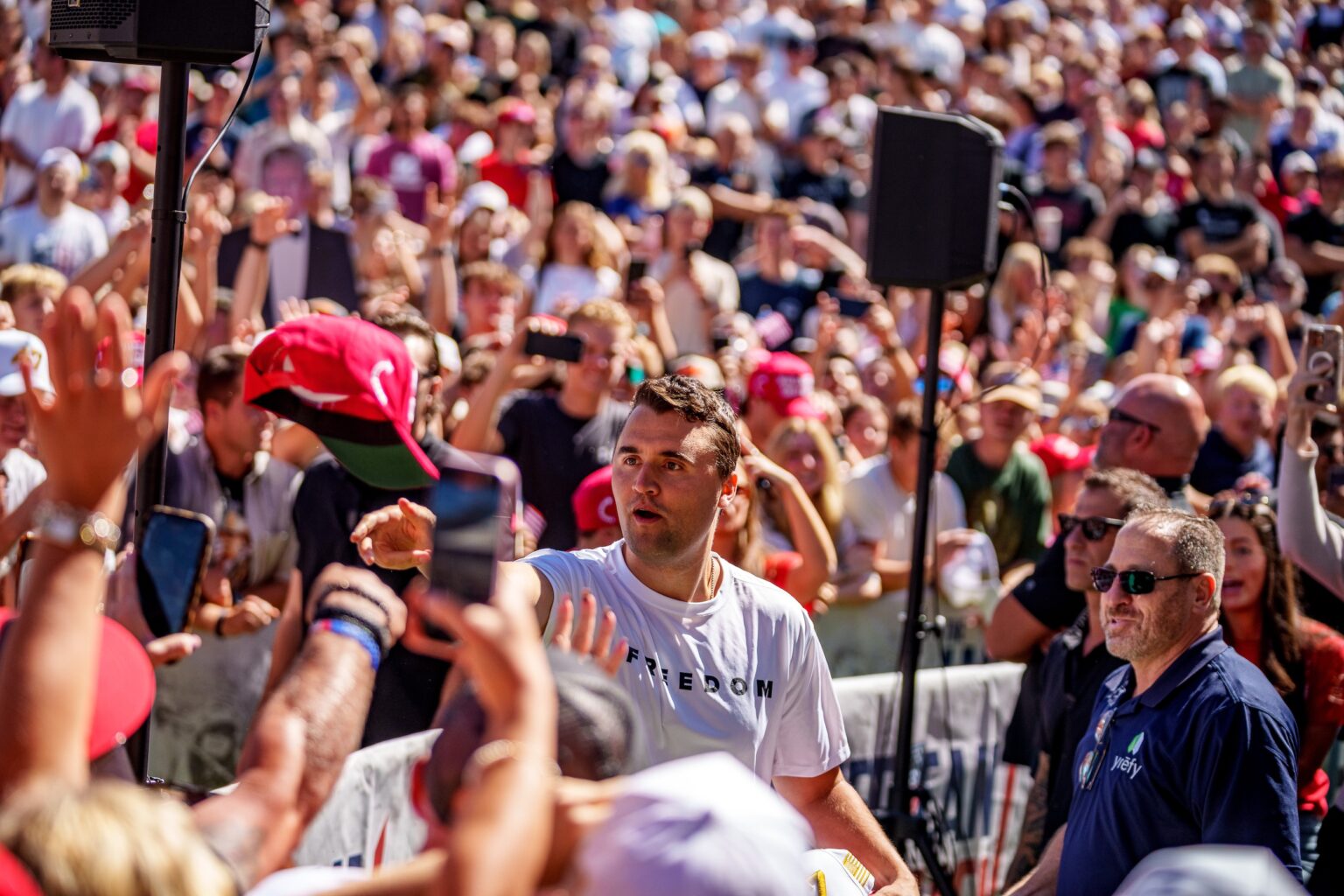I gasped, hard, when I saw the alert that Charlie Kirk, age 31, was shot in the neck, in broad daylight, while speaking at a packed outdoor rally on the grounds of Utah Valley University. He was answering a question about mass shootings when gunned down beneath a pop-up tent. Given the profound and vicious divides of these times—Left versus Right, Democrats versus Republicans, red states versus blue states, citizens versus immigrants, and on and on—I had longed feared we would enter a period of overt violence, and here we are.
I was absolutely aware that Charlie Kirk was a conservative activist, podcaster, social media influencer, and staunch ally of President Donald Trump.
Did I agree with what Charlie Kirk had to say about George Floyd, about the brain capacity of Black women, about Black airplane pilots, about the cancer of racism, about slavery, about Taylor Swift and marriage, about the LGBTQ+ community, or about the prevalence of guns in our society, one of which took his life? Absolutely not. I found his words, the sum of them, repugnant, irresponsible, fact-less, dangerous. But as a human being, as a Christian, as a Black man who knows the blues intimately, I also assert that I wish nothing bad on anyone, ever, and definitely not the end of a life, any life, whether I agree with a person or not.
I believe in love and peace, not hate and violence. I believe in the sanctity of life; I believe in the possibilities of a divine spirit. I believe in civil and rational and healthy debate, dialogue, conversation, not the savage stealing of another person’s final breath. I believe in freedom of speech, and the right to disagree freely as well. I believe in solutions, and healing. Violence is not, and has never been, a solution for anything, and violence is certainly not healing.
What will become of Charlie Kirk’s widow, his children, as they instantly join a club no one wants to be a part of, whether they were a voice for the people—any people—or whether they were one of the schoolchildren lost to senseless gun violence?
I think of my friend, Dr. Bernice King, one of the four children of Dr. King and Coretta Scott King. She has said, over and over, that while some lost a civil and human rights leader for this country, she and her siblings lost their daddy, and Mrs. King lost her husband.
This is henceforth the fate of Charlie Kirk’s family: A spouse left abruptly, heartbreakingly without a life partner. Children now without a parent. How could anyone possibly celebrate that kind of injury, that kind of hole in a family’s soul?
But this is why I am also so convinced this nation needs to come to grips with the violence seemingly in our very DNA. I know because I grew up in and all around violence. I am talking about how some members of my own family treated each other, physically, verbally, emotionally; what I witnessed in my communities and at my grade and high schools and my college campus; silly boy beefs that turned manly violent; and, yes, what I absorbed from my favorite movies and TV shows, too. Yes, I am likewise talking about violence I displayed in past chapters of my own journey. Because violence in America is as natural to many of us as cooking our food or brushing our teeth. It just is—legions are numb to it, yet we expect it, even when it is shocking, like this so very sad matter of Charlie Kirk.
Even sadder are the almost immediate social media reactions of some cheering, inhumanely, Kirk’s shooting and death, while others are blaming, inhumanely, the so-called woke Left for his downfall. It is just not that simple. If we are to blame one faction for this slaying of Charlie Kirk, then who do we blame for the murder of President Abraham Lincoln, who was merely trying to piece the country back together at the conclusion of the Civil War? Or what of the January 6 insurrection—who do we point those fingers at, if we are to play the blame game, for the lives lost or compromised on that day? When will it ever end? Do we ever want it to end, or are we good with being at each’s throats, are we good with being bridge destroyers rather than bridge builders?
And what does this say about America, as it approaches its 250th anniversary, that there’s a lengthy list of names, like President John F. Kennedy, like Malcolm X, like Senator Bobby Kennedy, Sr., like UnitedHealthcare CEO Brian Thompson, like Minnesota House Speaker Melissa Hortman, each the victim of gun violence, because someone did not agree with them, did not like who they were?
Yes, love begets love, peace begets peace, violence begets violence, hate begets hate, and we die with the eulogies written when we are alive. Or, as Dr. King and Mohandas Gandhi warned us, if we choose an eye for an eye it will ultimately leave everyone blind.
I do not want to be blind, and neither should you. I do not need to share Charlie Kirk’s views on America to feel sorrow. We’ve got to be better than this, we’ve got to do better than this, even where we ferociously disagree. I am clear words matter, how we treat our lives and the lives of others matter, too. Because when we do not have or lose the ability to love, in any form, then we have truly lost ourselves, and our very souls.
Kevin Powell is a Grammy-nominated poet, filmmaker, and author of 16 books. He previously wrote a Newsweek cover story on Spike Lee. Kevin lives in Brooklyn, N.Y. Follow him on all social media platforms: @poetkevinpowell.
The views expressed in this article are the writer’s own.
Read the full article here

